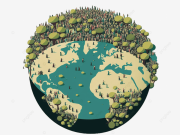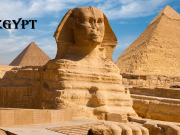Welcome to our blog, where we delve into one of the most tragic and horrific chapters of human history: genocide. Join us as we explore the concept of genocide, examine historical cases, and discuss the lasting impact on affected communities. From understanding the causes and mechanisms of genocide to advocating for prevention and justice, we aim to shed light on this grave violation of human rights and promote awareness and action.
Defining Genocide:
1.1 Understanding the Concept:
Defining genocide as the intentional and systematic destruction of a particular ethnic, racial, religious, or national group.
Exploring the legal definition of genocide as outlined in the United Nations Convention on the Prevention and Punishment of the Crime of Genocide.
1.2 Historical Examples:
Examining key historical cases of genocide, such as the Holocaust, the Armenian Genocide, the Rwandan Genocide, and the Bosnian Genocide.
Discussing the unique characteristics and consequences of each genocide.
Causes and Mechanisms of Genocide:
2.1 Political and Ideological Factors:
Exploring how political ideologies, nationalism, and extremist ideologies can contribute to the promotion of hatred and the dehumanization of targeted groups.
Discussing the role of state-sponsored propaganda and indoctrination in fueling genocidal ideologies.
2.2 Social and Cultural Dynamics:
Examining social divisions, ethnic tensions, and historical conflicts as underlying factors that can escalate into genocide.
Discussing the dynamics of discrimination, prejudice, and scapegoating that can contribute to mass violence.
2.3 Role of Leadership and Institutions:
Addressing the responsibility of leaders, including political, military, and religious figures, in orchestrating and perpetrating acts of genocide.
Discussing the complicity of institutions and the importance of accountability.
Consequences and Impact:
3.1 Loss of Human Life and Suffering:
Examining the devastating human toll of genocide, including the mass killings, forced displacement, sexual violence, and torture inflicted upon targeted populations.
Discussing the long-lasting physical, psychological, and social impacts on survivors and affected communities.
3.2 Destruction of Cultural Heritage:
Addressing the deliberate destruction of cultural and religious sites, artifacts, and traditions during genocidal campaigns.
Discussing the consequences for the preservation of cultural heritage and the collective memory of affected communities.
3.3 Inter-generational Trauma and Healing:
Exploring the transmission of trauma across generations and the challenges faced by survivors and their descendants.
Discussing the importance of healing, reconciliation, and memorialization processes in fostering resilience and promoting justice.
Prevention and Justice:
4.1 Early Warning and Prevention:
Highlighting the importance of early warning mechanisms and preventive measures in identifying and addressing the risk factors leading to genocide.
Discussing international efforts, such as the Responsibility to Protect (R2P), in promoting prevention and intervention.
4.2 International Criminal Justice:
Examining the role of international tribunals, such as the International Criminal Court (ICC) and ad hoc tribunals, in prosecuting individuals responsible for genocide and ensuring accountability.
Discussing challenges and opportunities in achieving justice for victims and promoting reconciliation.
4.3 Education and Remembrance:
Addressing the significance of education in raising awareness about genocide, promoting tolerance, and preventing future atrocities.
Discussing the importance of memorialization, museums, and commemorative events in preserving the memory of genocide and honoring the victims.
Conclusion:
As we conclude our exploration of genocide, we recognize the immense importance of understanding and confronting this dark chapter of human history. By acknowledging the causes and mechanisms of genocide, advocating for prevention, pursuing justice, and promoting education and remembrance, we can work towards a world where such atrocities are never repeated.
























